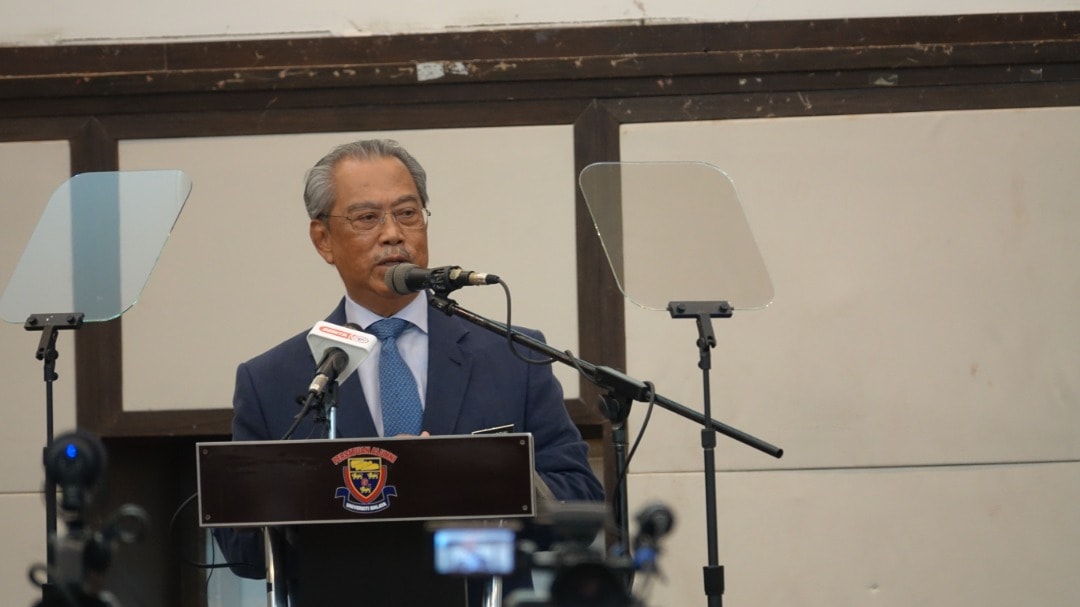KUALA LUMPUR, Jan 11 — A two-week lockdown limiting people to 10km travel from their homes will be implemented in six states from January 13 to 26, Muhyiddin Yassin announced today, amid a surging Covid-19 epidemic.
According to the prime minister, the six states with nearly 19.6 million people put under a Movement Control Order (MCO) are the Federal Territories (Kuala Lumpur, Putrajaya, Labuan), Selangor, Penang, Johor, Melaka, and Sabah.
Meanwhile, a Conditional Movement Control Order (CMCO) will be implemented in Pahang, Perak, Negeri Sembilan, Kelantan, Kedah, and Terengganu during the same period.
Sarawak and Perlis will be under a Recovery Movement Control Order (RMCO), said the PM, even though the Sarawak state government announced earlier today that Kuching, Sibu, and Miri would be placed under CMCO from January 13 to 26.
Muhyiddin said that the MCO was necessary as the public health care system was at a “breaking point”, with more than 2,000 new Covid-19 cases recorded daily.
“The situation today is indeed very alarming our health care system is under tremendous pressure now than at any other time since the start of the pandemic. As I have said before, unprecedented situations call for unprecedented measures,” Muhyiddin said in a national broadcast.
Muhyiddin added that the current bed occupancy rate in 15 Covid-19 hospitals is over 70 per cent currently, while intensive care unit (ICU) beds for Covid-19 patients were fully occupied in Kuala Lumpur Hospital and University Malaya Medical Centre (UMMC). The ICU bed occupancy rate for Covid-19 patients has reached 83 per cent in Sungai Buloh Hospital.
Besides that, the ICU bed occupancy rate for coronavirus patients in five states — Perak, Selangor, Melaka, Terengganu, and Sarawak — has exceeded 70 per cent.
Among the MCO standard operating procedures (SOPs) implemented include :
- 10km travel restrictions from one’s home
- Only two people per household allowed to go out to purchase necessities in the same vehicle
- No inter-district or inter-state travel
- No dine-ins
- No gatherings, meetings, conferences, courses allowed, including weddings, religious processions, and group sports
- Take-aways from restaurants or stalls allowed
- For religious activities, only committee members of mosques or houses of worship are allowed to attend in states under MCO with a maximum of five people
- Outdoor jogging or cycling allowed in pairs with members of one’s household, but not in groups
The only economic sectors that are allowed to operate in states under MCO are manufacturing, construction, services, trade and distribution, as well as plantations and commodities, said Muhyiddin, even as several Covid-19 clusters have popped up in migrant workers’ dormitories.
At the management level, only 30 per cent of workers will be allowed to go to office, while the number of support staff needed at the office will be determined by respective employers. Workers in non-essential services are required to work from home.
However, despite the implementation of the MCO, students who are sitting for the SPM examination from batch 2020 and batch 2021 will be allowed to go to school with strict SOPs practiced.
The MCO that was implemented back in March 2020 was extended up till seven weeks and had affected many people’s livelihoods. During the first MCO implemented nationwide, Malaysia suffered a loss of gross domestic product earnings of up to RM300 million per day.
Former Malaysian Medical Association (MMA) president Dr Milton Lum in his op-ed pointed out how Argentina, which had the longest lockdown in the world, failed to bring down the number of positive Covid-19 cases, while the country’s economy was severely damaged.








